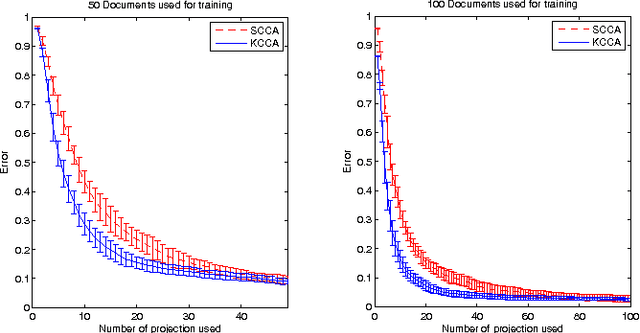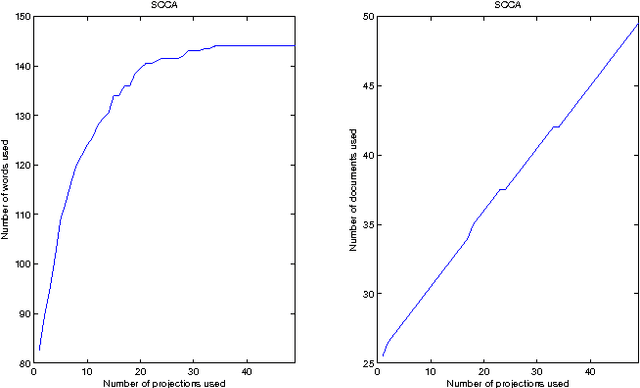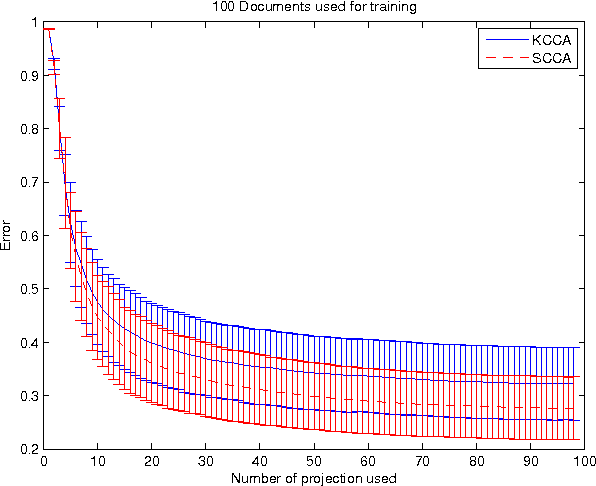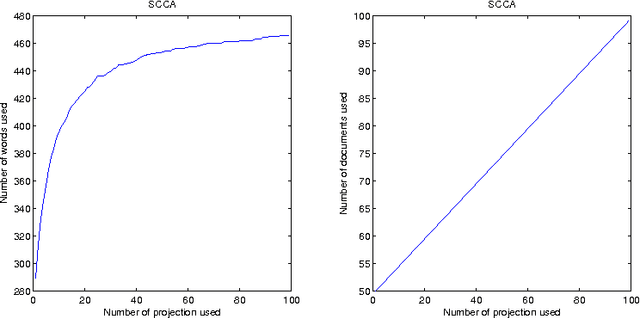Sparse Canonical Correlation Analysis
Paper and Code
Aug 19, 2009



We present a novel method for solving Canonical Correlation Analysis (CCA) in a sparse convex framework using a least squares approach. The presented method focuses on the scenario when one is interested in (or limited to) a primal representation for the first view while having a dual representation for the second view. Sparse CCA (SCCA) minimises the number of features used in both the primal and dual projections while maximising the correlation between the two views. The method is demonstrated on two paired corpuses of English-French and English-Spanish for mate-retrieval. We are able to observe, in the mate-retreival, that when the number of the original features is large SCCA outperforms Kernel CCA (KCCA), learning the common semantic space from a sparse set of features.
 Add to Chrome
Add to Chrome Add to Firefox
Add to Firefox Add to Edge
Add to Edge